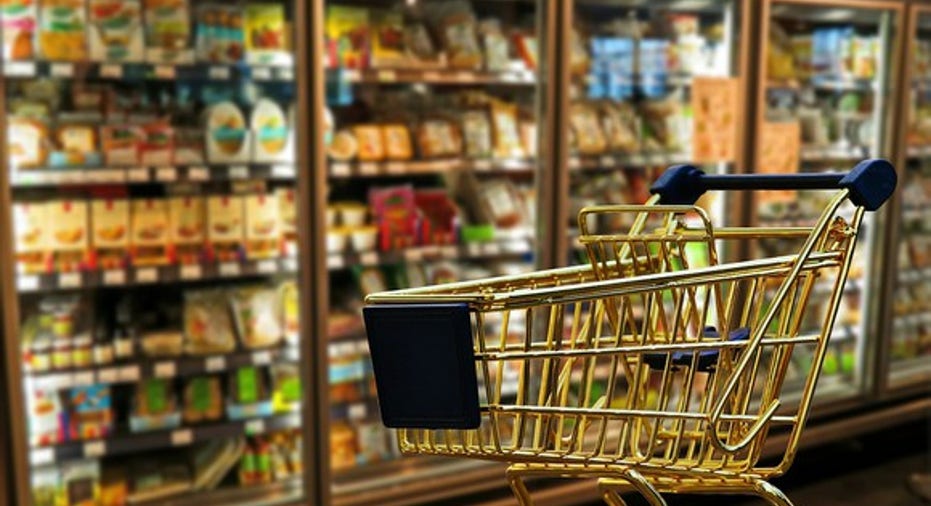Better Buy: Procter & Gamble Co. vs. Unilever

Procter & Gamble (NYSE: PG) and Unilever (NYSE: UL) are two of the biggest names in consumer packaged goods. Both companies own massive portfolios of billion-dollar brands that generate slow but stable growth.
Investors have turned to both stocks as conservative dividend plays for years, but is one stock better than the other? Let's compare their core business models, growth trajectories, and valuations to find out.
Image source: Pixabay.
What do P&G and Unilever do?
Cincinnati-based P&G's top brands include household names like Tide, Bounty, Charmin, Gillette, Pringles, and SK-II. It reports its earnings in five segments -- beauty, grooming, healthcare, fabric/home care, and baby/feminine/family care products.
Revenue fell 1% across each segment last quarter except for healthcare and fabric/home care -- which respectively posted 4% and1% growth. Its total revenue growth stayed nearly flat. But on an organic basis (excluding currency impacts, acquisitions, and divestments), P&G's revenue rose across all five segments and boosted its revenue by 3%. Analysts expect P&G's revenue to rise 2% next year.
Unilever, which is co-headquartered in London and Rotterdam, sells Dove, Axe, Lipton, Rexona, Caress, and Ben & Jerry's. It reports its earnings in four segments -- personal care, home care, foods, and refreshment. Revenue at all four units rose on an underlying basis (comparable to P&G's organic basis) last quarter and boosted its underlying sales by over 3%. But on a constant currency basis, which was heavily impacted by the weak euro and strong dollar, sales stayed nearly flat. Analysts expect Unilever's revenue to rise 4% next year.
Shared weaknesses
Both companies are often criticized for owning too many brands. Analysts often discuss the ideaof breaking upP&G and Unilever into more streamlined companies, but the companies' defenders claim that their well-diversified portfolios protect them from volatility across specific regions and industries.
Yet P&G has taken steps to streamline its portfolio. It dropped about 100 brands in 2014 and sold its Vicks VapoSteam business to Helen of Troyin 2015. Last year, it sold 43 beauty brandstoCotyand transferred its Duracell brand toBerkshire Hathaway.
Unilever also made similar moves over the past five years. It sold its Sanex brand to Colgate-Palmolive in 2011 and its Skippy peanut butter brand to Hormel in 2013. In 2014, it sold its meat snacks business to Jack Link's, its pasta sauces to Mizkan, and its Slim-Fast brand to Kainos Capital. In 2015, it split its struggling spreads business into a new company, and it acquired Dollar Shave Club to strengthen its grooming segment last year.
Earnings, valuations, and dividends
P&G's core earnings per share, which exclude restructuring charges and discontinued operations, rose 5% annually last quarter. Analysts expect its earnings to improve 8% on the same basis next year. Unilever only reports its core EPS every half year. That figure rose7.5% in the first half of fiscal 2016, and analysts expect 7% growth on that basis next year.
P&G currently trades at 22 times earnings and Unilever trades at 23 times earnings, which both compare favorably to the industry average P/E of 24 for personal products makers. The stocks trade at 20 times forward earnings.
P&G pays a forward yield of 3.2%, which is supported by a payout ratio of 75%. It's raised that dividend annually for six decades. Unilever pays a forward yield of 3.4%, which is supported by a payout ratio of 71%. But Unilever has a much spottier record with dividend increases, which are declared every quarter based on its earnings growth and further distorted (for ADR shareholders) by fluctuating exchange rates. That's why Unilever's annualized dividends fell from 2014 and 2015 before rising again last year.
The winner: P&G
P&G and Unilever are similar companies with comparable portfolios and growth rates. It's a close call, but P&G's slightly lower multiple and consistent dividend hikes make it a better play in my book. But Unilever still remains a solid defensive investment in a wobbly market, and I wouldn't mind adding either stock to my portfolio.
10 stocks we like better than Unilever When investing geniuses David and Tom Gardner have a stock tip, it can pay to listen. After all, the newsletter they have run for over a decade, Motley Fool Stock Advisor, has tripled the market.*
David and Tom just revealed what they believe are the 10 best stocks for investors to buy right now... and Unilever wasn't one of them! That's right -- they think these 10 stocks are even better buys.
Click here to learn about these picks!
*Stock Advisor returns as of January 4, 2017
Leo Sun has no position in any stocks mentioned. The Motley Fool owns shares of and recommends Berkshire Hathaway (B shares). The Motley Fool recommends Unilever. The Motley Fool has a disclosure policy.



















